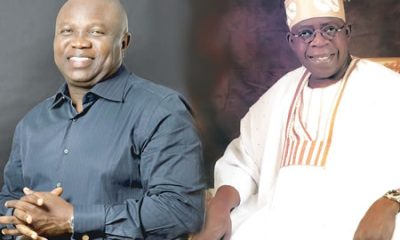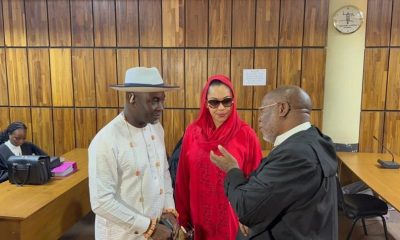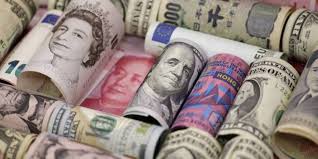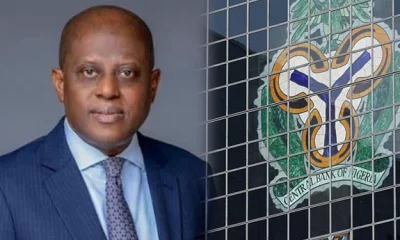- as naira hits lowest point in history
By ODUNEWU SEGUN
SINCE the inception of the administration of President Muhammadu Buhari, a number of conflicting and unclear monetary policies have been implemented that have greatly eroded the value of the Naira and exacerbated the current economic crises.
National Daily gathered that Manufacturers are angered that Buhari, the ascetic former military ruler elected on a wave of optimism last year, has not only failed to react fast enough to the changing climate but made matters worse by experimenting with outmoded remedies that have not stemmed the economy’s freefall.
As at the weekend, Nigeria’s currency, the naira hits bottom low, exchanging for as high as N497 to the dollar at the parallel market amidst persistent scarcity of forex that many attributed to CBN’s forex policy.
The currency policies and associated import controls set up to conserve hard currency by prioritizing strategic imports when President Buhari more than a year ago have starved existing businesses of inputs, leading to a collapse in supplies of everything from medicines to spare parts.
The impact has been chilling. Nigeria’s economy, which grew annually at an average rate of 7 per cent in the decade to 2014, contracted by 0.36 per cent in the first quarter of 2016, falling deeper before the end of 2016.
The import controls and restrictions on foreign exchange, National Daily gathered, have hit the manufacturing sector hard, eroding the credibility of the Buhari administration’s ambition to diversify the economy.
In 2016, about 272 firms were shut, while some reduced their production, staff strength and remuneration of workers. Investigation by National Daily revealed that more than half a million workers lost their jobs in 2016, while the livelihoods of tens of millions more people employed in the informal sector have been hit by inflation of nearly 14 per cent, spurred by escalating shortages of basic goods and the rapid devaluation of the naira on the parallel market, where most traders are now compelled to source their foreign exchange.
Available data shows that more than 12000 manufacturing sector jobs were lost in 2016 alone with unsold goods inventory exceeding N100 billion.
Hamma Kwajaffa, the Director-General, Nigerian Textile Manufacturers Association (NTMA), said that the textile industry nearly went into extinction due to inability to access foreign exchange for critical raw materials.
Kwajaffa said that no textile manufacturer had accessed foreign exchange inspite the $660 million earmarked for manufacturers at the official interbank market.
Nnamdi Okafor, the Managing Director, May and Baker, said the inability of manufacturers to access foreign exchange through the interbank affected industrial production and contributed to inflation.
Babatunde Odunayo, the Chairman, Apapa Branch of MAN, said that some Letters of Credit and Form Ms, approved to manufacturers at N197/US$ before the introduction of the flexible exchange system, were redeemed at N320.
He said this meant a huge loss to manufacturers as the related goods had mostly been sold before the commencement of the new exchange rate system.
Odunayo said that the exchange rate loss of N500 billion reflected in their accounts and led to factory closures, unemployment and loss of investments.
According to him, the exchange rate losses required additional working capital to shore up cash differences of between N320 and N197.
The effect is not just on the manufacturing sector. The pharmaceutical sector is shedding thousands of jobs and the prices of life saving medication have doubled and in many cases tripled. An attached list of medication shows a minimum of 100% increase in most cases.
The aviation sector is currently plagued by high prices occasioned by scarcity of aviation fuel, Nigerians are currently suffering under the effects of kerosene scarcity and virtually any line of business that requires access to Forex is experiencing difficulty in accessing Forex for its operations.
Indigenous airlines like Aero Contractors, Dana and some others have one times suspended scheduled commercial flight operations due to the exorbitant foreign exchange cost while Spanish airline, Iberia also suspended flights to Nigeria ostensibly for the same reason.
According to expert, a controlled devaluation would allow manufacturers and traders to make informed pricing decisions, less dependent on the Governor of the Central Bank of Nigeria’s will.
However, despite this assurances, companies are not holding their breath. Others in the government insist that the new budget will kick-start the economy. External borrowing to finance it has yet to be secured, however, and business remains unconvinced that government spending alone will be enough.

 Business1 week ago
Business1 week ago
 Business1 week ago
Business1 week ago
 Latest1 week ago
Latest1 week ago
 Health1 week ago
Health1 week ago
 Latest1 week ago
Latest1 week ago
 Business1 week ago
Business1 week ago
 Business1 week ago
Business1 week ago
 Comments and Issues1 week ago
Comments and Issues1 week ago













